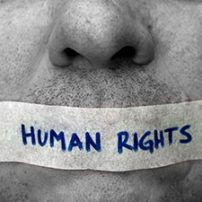
Condemnation of a citizen for sending two messages to a friend promoting a terrorist organization. Violation of freedom of expression
JUDGMENT
SÜER v. Turkey 29-09-2020 (app. no. 77711/11)
SUMMARY
Freedom of expression. Sending a message to a friend in fn the name of a terrorist organization.
The applicant was accused of propaganda in favor of the PKK terrorist organization because he sent two messages to a friend, praising her. He was sentenced to 10 months suspended imprisonment. He filed a complaint for violation of freedom of expression.
Strasbourg found that the Turkish authorities did not provide sufficient explanations as to whether the two messages, given their content, could be considered to incite the use of force, armed resistance or insurgency, or to constitute hate speech.
It thus held that the national authorities had failed to strike a fair balance between the right to freedom of expression and the protection of public security and found a violation of freedom of expression (Article 10 of the ECHR).
PROVISION
Article 10
PRINCIPAL FACTS
The applicant was born in 1975. He was being held in a detention center in Izmir on the date the appeal was lodged.
On 12 June 2008, the prosecutor prosecuted the applicant for propaganda in favor of the PKK terrorist organization over two messages he allegedly sent from his mobile phone in order to promote ideology and propaganda in favor of this organization (Kurdistan Workers’ Party, characterized as an illegal armed organization).
On 15 June 2010, the Ismirn Criminal Court found the applicant guilty of the alleged offense and sentenced him to 10 months’ imprisonment in accordance with Article 7 § 2 of Law 3713. It noted in this case that the applicant had sent two mobile phones. text messages with the following content: “Our passion is Çiya, our heart is Apo, our soul is the mountains, our hope is the guerrillas, our love is Aşiti, our love is Birati, Rojame azadi nevroza et Pirozbe ». It considered that the messages praised the PKK leader, describing the group’s fighters as guerrillas, and stressed that the latter brought hope to the struggle. It concluded that by sending these messages to other persons, the applicant had intentionally carried out propaganda in favor of the PKK.
On 14 April 2011 the Court of Cassation, following an appeal lodged by the applicant, upheld the decision of the Criminal Court.
On 25 July 2012, the Criminal Court, noting the entry into force of Law 6352, decided, pursuant to provisional Article 1, to suspend the execution of the sentence imposed on the applicant for a period of 3 years, before the latter begins to serve the sentence she.
THE DECISION OF THE COURT…
The Court noted that, in the present case, the applicant was sentenced to 10 months’ imprisonment, after which he was granted suspension of the sentence due to two messages sent via his mobile phone.
It considered that, in view of the deterrent effect that the criminal proceedings against the applicant might have had, which lasted about two years and ten months, the ten-month prison sentence imposed on him and the decision to suspend the execution of the sentence , which submitted the applicant to a period of suspension of three years, amounted to interference with the applicant ‘s exercise of the right to freedom of expression.
It then remarked that it was not disputed between the parties that this intervention was provided by law, more specifically by article 7 § 2 of Law 3713, and that it pursued legal objectives according to article 10 par. 2 of the Convention, ie the protection of national security and territorial integrity, safeguarding public safety and crime prevention.
As regards the necessity of intervention, the Court recalled the principles derived from its case-law on freedom of expression, which are summarized in particular in Bédat v Switzerland ([GC], no. 56925/08, § 48, 29 March 2016) and Faruk Temel v. Turkey (no. 16853/05, §§ 53-57, 1 February 2011). It considered that, in order to assess whether the ‘necessity’ of the infringement of the applicant’s right to freedom of expression was convincingly established in the present case, it should, according to its case-law, be determined primarily in the light of the reasons given by the Turkish courts in support of of his conviction.
Analyzing the decision of the Criminal Court, it noted that this court, after relating the content of the two messages to the applicant, considered that these messages praised the leader of the PKK, describing the fighters of this organization as guerrillas and emphasizing that the latter provided hope that the sending of these messages was propaganda in favor of the PKK. It noted in that regard that the decision did not provide sufficient explanations as to whether these SMS, which were sent to only two recipients via the applicant’s mobile phone, given their content, could be considered to incite the use of force, armed resistance or that they constitute hate speech. It therefore concludes that, in the circumstances of the case, by convicting the applicant of propaganda for a terrorist organization, the national authorities did not strike a fair balance and did not act in accordance with the criteria laid down in his case law. the applicant’s freedom of expression and the legitimate aims pursued.
In the light of the above, the Court considered that the Government had not demonstrated that the reasons given by the national authorities to justify the measure were relevant and sufficient and that they were necessary in a democratic society.
The ECtHR found a violation of freedom of expression (Article 10 of the Convention).
Just Satisfaction: The ECHR awarded the sum of 2.000 euros for non peculiar damage.


